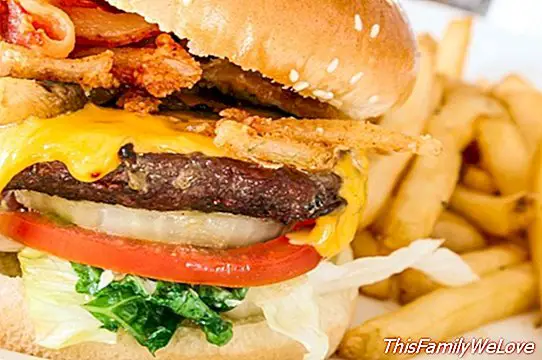An overweight person sees food as a reward

What makes a person with overweight Keep eating knowing that it is not for you? Why consume high fat products if it is known that they will not be beneficial? Knowing how someone's mind works with this problem helps initiate a correct treatment.
A better knowledge about what happens inside means that there are better chances of starting a treatment to counteract their disease. Now thanks to a work of the Mind Center, Brain and Behavior, belonging to the University of Granada, professionals are a little closer to knowing what happens inside the brain of people with overweight and obesity.
Money or food?
As if it were a prize, the brain of overweight and obese people understand food as the best reward. Even that money. This has been determined by the University of Granada after analyzing a total of 81 cases composed of 21 people with obesity, 21 with overweight and 39 within the recommended parameters based on their height.
All these people were presented with different images of foods that varied from healthy products such as fruits and vegetables even the least recommended for its high level of fat such as hamburgers and other types of junk food. After showing them these photographs, the researchers asked them how much money they would be willing to pay for each of these items.
On the other hand they were also tested where they had to press a button whenever they saw a star appear on a screen. If successful, they would receive financial compensation.
Best food rating
The results of both tests determined that as the Body Mass Index was higher, IMC, the food was valued as an item of more value than money. That is to say, the brains of overweight and obese people reacted to the idea of being able to receive one of the dishes presented before the possibility of receiving money for correcting a question.
On the contrary, people with less weight and those with a BMI within the recommended parameters for their height reacted better to the possibility of receiving money for their success. It is from the threshold between a BMI between 27 and 32 when people begin to downplay the economic reward in favor of the option of getting high-fat, high-sugar foods.
Better future treatments
Researchers say that discovering how the brains of people with overweight and obesity function in relation to the reward circuit will help to project better treatments against these problems. A good way to take advantage of these data would be to focus the minds of these patients before other stimuli and make them feel that they have received a prize in another way.
For example, betting on treatments where the brain of these overweight people see the fact of having lost kilos as a reward that makes your brain feel good every time you receive this news and make the subject be anime to continue working. In the same way, it is also recommended that these subjects avoid, as far as possible, advertisements for fast food and other elements that may activate this brain circuit.
Damián Montero




